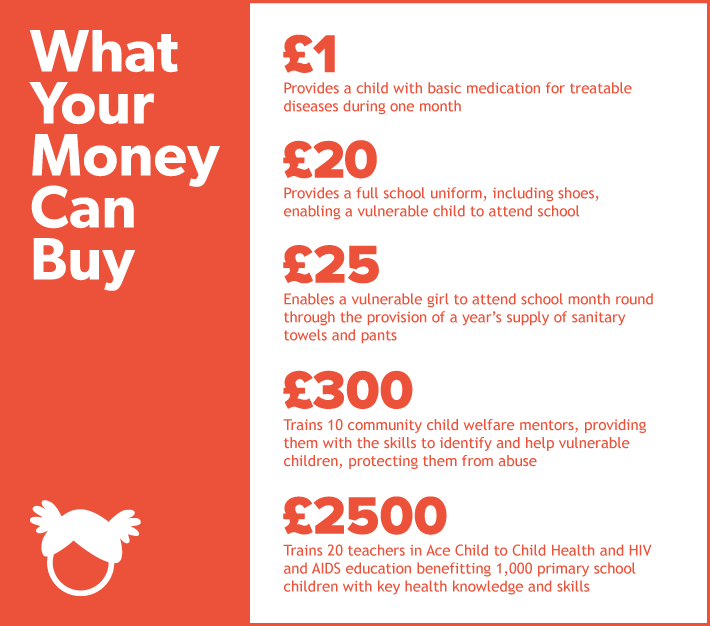Because Ace Africa works to achieve long-term, sustainable improvements, our Child Development programmes are essential to ensuring that the change we help deliver can be passed on from generation to generation. In giving children the skills and knowledge they need to build healthy, productive and fulfilling lives for themselves, we are creating the kind of inter-generational legacy that can and will provide enduring success for communities and individuals alike.
Health and Wellbeing
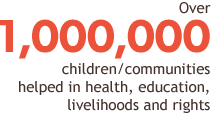
To ensure the improved health and wellbeing of children, particularly girls, Ace has established Child-to-Child (CtC) Clubs in Primary Schools. The Ace CtC (Child-to-Child) Clubs approach helps children learn what to do in order to promote the health, well-being and development of themselves, their families and their communities. As active decision makers, children become influential agents for change in making health choices in schools and the community. Since its inception in 2005, the Ace CtC Clubs programme has expanded to include specific HIV related education in life skills, protection, counselling, peer education, agriculture and nutrition.
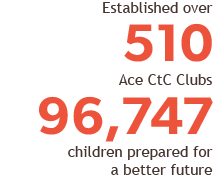
- WHAT WE DO:
- Develop knowledge through song, games, plays, debates, art and writing in health, literacy, animal husbandry and psychosocial wellbeing
- Establish community gardens at each Ace Club primary school through the provision of seeds, drip irrigation and other tools to provide education for the children, food for the schools/ community as well as income generation
- Develop peer mentoring and leadership
- Develop a group strategy to recognise and reward the roles played by community volunteers including Ace Club teachers and children whilst ensuring sustainability (rather than dependency) is instilled.
72% of children in CtC Clubs have sound knowledge on their health, HIV and rights and share this knowledge with other children (2-3 on average) and their families (5 household members). Through the clubs 80% of children counseled have improved psychosocial wellbeing.
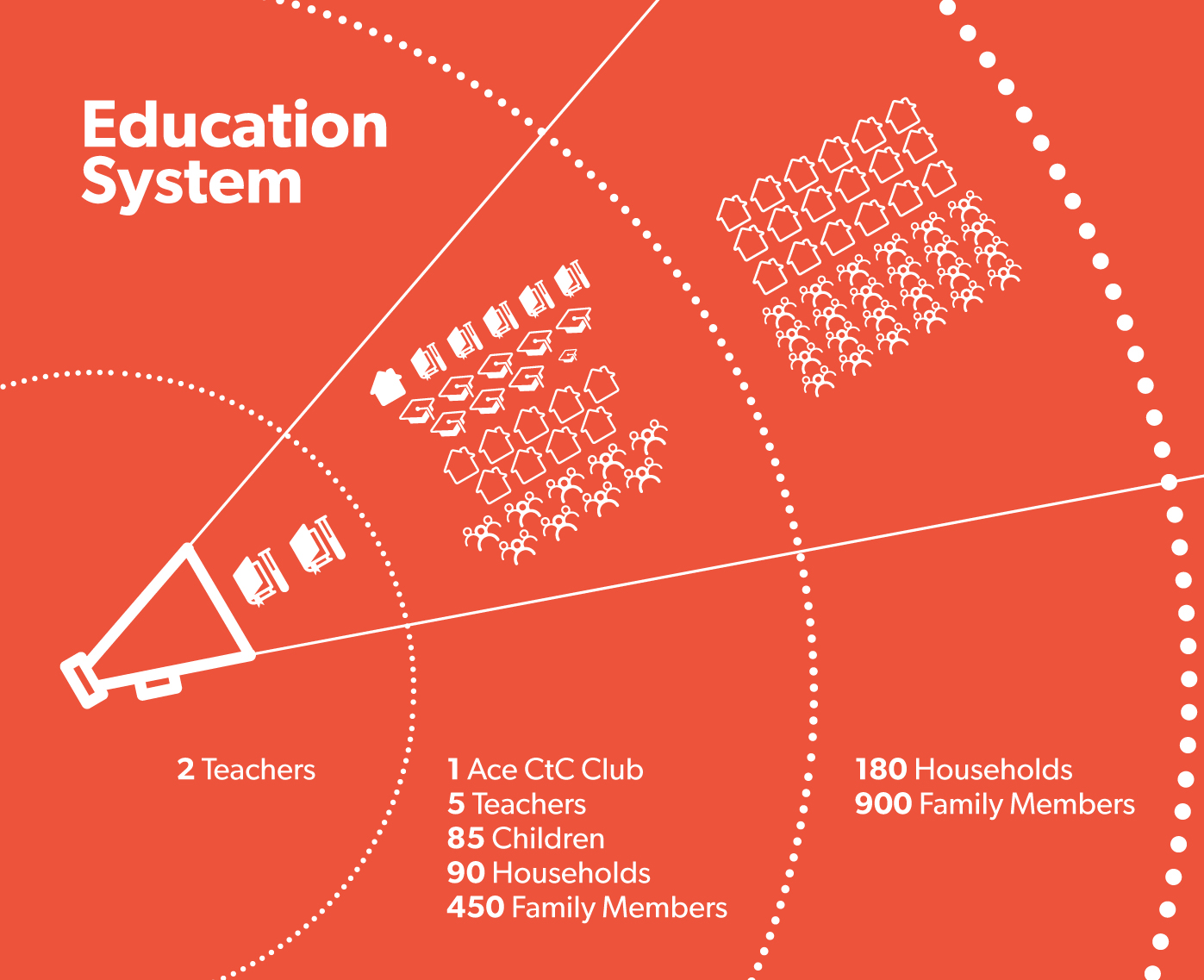
For more information about the modus operandi of our Ace Child-to-Child Clubs please click here.
Child Protection
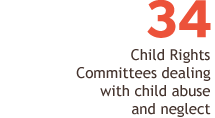
The Ace Africa rights protection programme exists to increase awareness of the rights of children and women, particularly in areas where HIV is prevalent. We aim to strengthen community knowledge and the ability to protect the rights of children and women, promoting a ‘whole community’ approach where all children, including the most vulnerable, have their rights protected… and respected.
The programme involves educating the community about their rights; establishing Child Rights Committees who are responsible for raising awareness of child rights; identifying, solving and referring issues of child abuse and strengthening links between the community, district and national protection systems.
- WHAT WE DO:
- Train community members as Household and Child Welfare mentors to ensure protection from abuse and exploitation
- Support District Rights Committees (DRC) and Areas Advisory Committees (AAC) to design and implement clear community referral systems to ensure children’s rights are recognised and pro bono legal support is available
- Build on links with local government and partners to ensure quality services are provided and local government provision is held accountable
- Work with local service providers to enhance their ability to provide quality services that meet the needs of the community
Educational Support
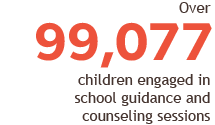
It is critical for children to be fully equipped to attend school ensuring access and retention. Whilst primary school tuition is free, the reality is children without a uniform and the necessary stationary are not allowed to attend. Ace Africa reaches out to the most vulnerable children and provides them with the necessary resources to ensure they can complete primary education, including sanitary items for girl’s regular attendance.
We would like to take this opportunity to thank our loyal bursary and alumni sponsors who have provided life- changing opportunities for children through the gift of secondary and university education in Kenya, where this education is not free. Going forward, the programme is being phased out as governments and other donors increasingly take on the responsibility of providing bursaries and counseling to vulnerable children.

- WHAT WE DO:
- Continue to support two schools for orphans in Kenya through the provision of teachers, school uniforms and scholastic materials for students attending the school
- Provide school uniforms, sanitary towels, personal items and emergency aid for other vulnerable children and their families e.g. bed nets, essential household items to facilitate increased school attendance and reduce vulnerability
- Continue to manage current bursary cases supported by individual sponsors mostly from UK and assist in recalibration of bursary support to be provided by in country
- Continue to build our network and mapping of local services and partners to facilitate referrals to bursary and other providers
